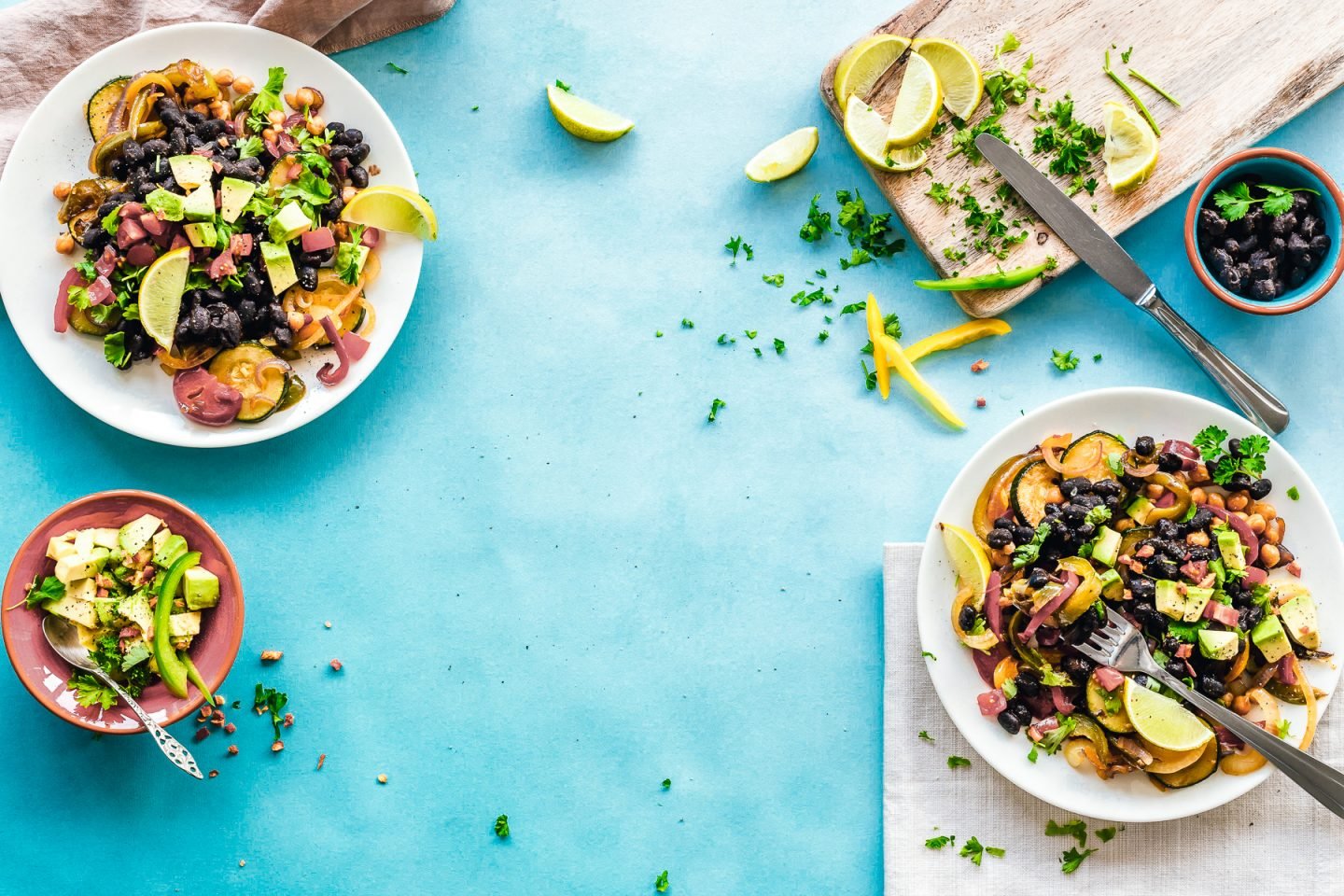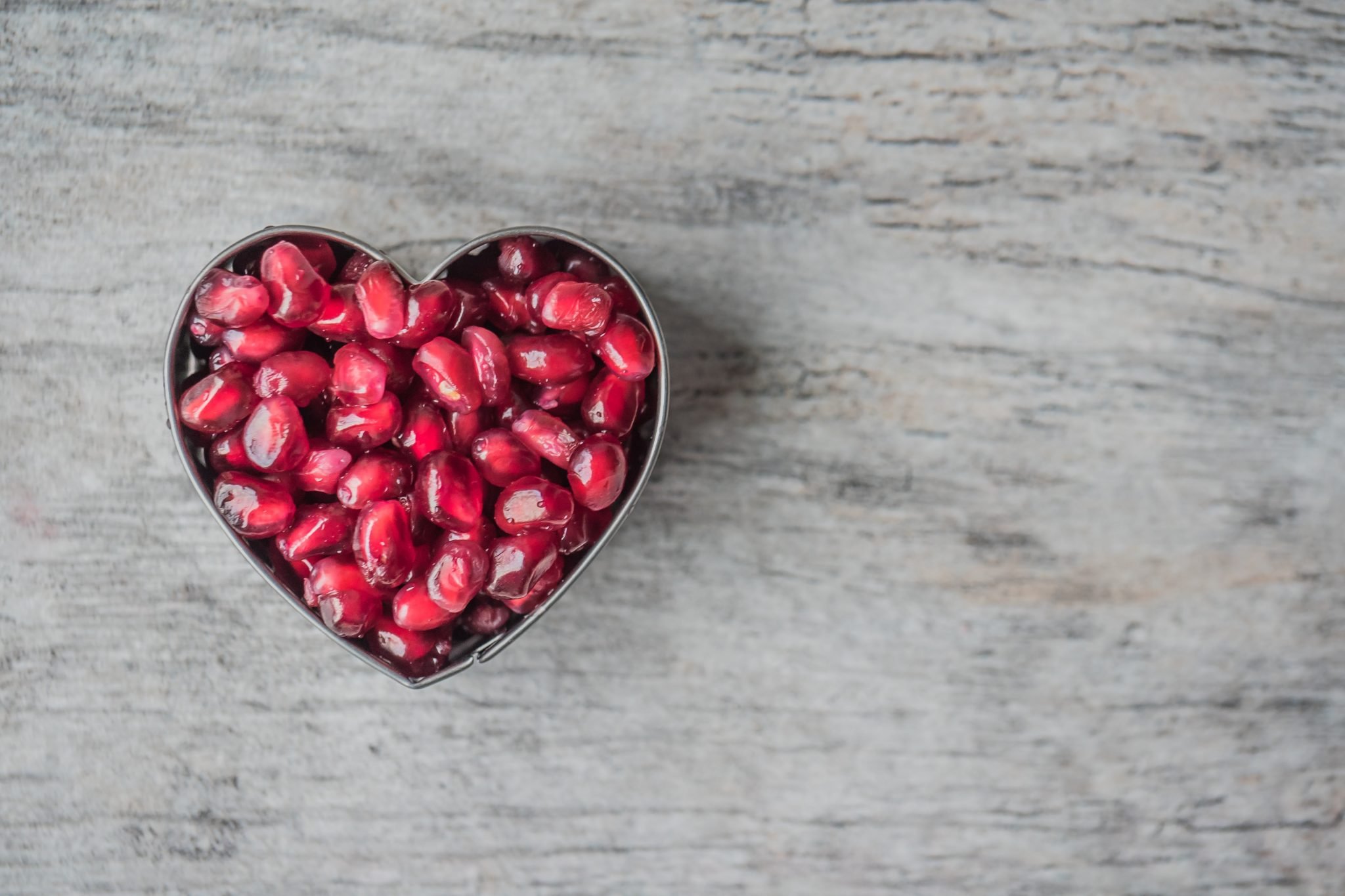Food and Mindfulness: The Cycle of Eating and Feeling Well

Feeding My Feelings
It was a Friday afternoon, and I was exhausted from a late Thursday night out with friends after work. The glasses of wine that I had with dinner, coupled with not enough sleep, had me moving through the day with a heaviness that I was very familiar with. While I had gotten better at avoiding flat-out hangovers (note: I need to eat a full meal before my second drink), the "3 drinks + 5 hours of sleep" formula always equaled fatigue the next day. I was already plotting what I would order (i.e., some form of vegan junk food). In fact, I was calculating what time I would need to place my Postmates order so that it would arrive within minutes of me walking through my front door.
It was a vicious cycle that I was well accustomed to at this point in my life. As much as I wanted to make a healthy choice for dinner the next time, my body was saying, "F*ck that! Gimme grease! Gimme carbs! I need to feel better!"
While this is something that I usually experience after a late night out, it can also occur due to stress or boredom. This type of emotional eating is rooted in an attempt to make ourselves feel better.
Comfort Food vs. Junkfort Food
There is a difference between feeling good and alleviating bad feelings. You know what I'm talking about. It's that heavy or even gross feeling you get when you're tired, hungry, and just want to Netflix and chill for the next three days straight.
When most people think of comfort food, they typically turn to the foods of their childhood. Ask anyone what their last meal would be, and they'll almost certainly name at least one dish that they enjoyed as a kid. For me, comfort food is anything that my mom makes (Sri Lankan food) or any type of soup, especially when there are noodles involved.
But when I'm not feeling 100%, I don't turn to the comfort foods that make me feel good, happy and taken care of. When I'm feeling subpar, I want food that's not good for me for various reasons. I turn to "junkfort foods."
This food group includes burgers, nachos, pizza, and deep-fried anything (all plant-based, of course); foods that are not high in nutrients but are laden with carbs, fat, and sugars. The barrage of these junk foods on my digestive system is unkind and inefficient. It has to process a large amount of food without getting any real benefit in return since the food is sorely lacking in vitamin and mineral-rich vegetables, fruits, and superfoods.
So instead of feeling better after eating, I feel worse, and it results in a chain reaction of bad behaviors:
Eat Junkfort Food ➙ Feel Lethargic ➙ Skip Workout ➙ Feel Gross ➙ Eat Junkfort Food ↺ Repeat
Food = Energy

For the most part, this is not a major problem in my life. I have a late night every few weeks, I eat junk food for a meal or two, and then I return to my regular healthy diet. But this interruption of my normal state affects more than just my waistline.
When I am eating well, I am more active and approach my day with eagerness and optimism. I am in love with my life and all the possibilities that each day offers. I work out regularly and make good food choices.
When I'm not eating well, I am impatiently waiting for time to pass until I reach a point when I feel better again. All the while, the number on the scale is moving in the wrong direction. What a waste!
Why does this happen?
I am an ardent believer that everything is energy. Whether or not you agree, you know that humans consume food as a means to provide energy to the body. What we eat is processed through our digestive system and converted into glucose, amino acids, and fatty acids which allow us to live, breathe, and go about our business.
We take energy in the form of food and convert it into energy that fuels our lives. In order to change the output, we must change the input.
"Let Thy Food Be Thy Medicine"
Lately, I’ve been drawn to learn more about food, and how it affects us (see below for a list of books I've been reading) and the consistent themes have been how food can heal us and directly affect our well being. Not only are there countless studies and anecdotes showing how a change in diet can reverse diabetes and reduce the risk of heart disease, but the food we eat can affect how we feel and how we think.
Most of us are familiar with Hippocrates' famous quote, "Let food be thy medicine and medicine thy food." I interpret it for our modern times as, "If you are unwell, first consider your diet and make changes to the foods you eat before you start consuming manufactured (and often times dangerous) pills." In other words, let's look a the fuel we are attempting to power our bodies with before we start adding more stuff into the fuel tank.
It makes sense that if we consume food as energy to fuel our bodies that it will affect how our mind and body move through each day. If we eat crap, we feel like crap. So if we want a greater sense of well being, it stands to reason that we should start eating well first.
 Beyond the Waistline
Beyond the Waistline
As I thought about this, it occurred to me that I'd always seen a direct relationship between food and fitness but never gave much thought to food and spirituality. I know that many Buddhists, Hindus, and Jains abstain from eating meat because of their shared spiritual doctrine of Ahimsa, which translates to "cause no injury" or "do no harm." They eat a vegetarian diet because the killing of animals for food goes against this philosophy of non-violence (check out this great article on Gaia.com that explains how Ahimsa goes far beyond vegetarianism).
But was there a deeper reason behind their choice of food?
I thought about mindfulness and remembered times when I tried to sit down and meditate but couldn't because my stomach was growling in hunger. Or when I went to yoga class after eating breakfast (which I had never done before) and how uncomfortable some of the postures were (I felt like throwing up after too many baby cobras). I thought about how a greasy, heavy dinner had resulted in a fitful, sleepless night.
Food is clearly important when trying to maintain a healthy and fit body, but how it affects our mind is possibly even more critical.
If what we eat can affect so many aspects of our day, it's no wonder that those on the spiritual path are so mindful of what they put in their bodies. Each meal is effectively fuel for the next thing we want to tackle. But what is the best fuel for our body?
Mind-Body Types
For anyone who has tried their fair share of diets (No Carbs, All Carbs, Keto, Paleo, Vegan, Pegan), you can likely attest to the fact that not every diet works for every body. Our bodies have different builds and we come from different ancestral backgrounds. It's odd that we would assume that a single guideline would work the same way for each of us. Unfortunately, that's what we're led to believe and so many of us have been disappointed as a result. This trial and error approach can be frustrating, to say the least, and deflating (although not in a good way) at its worst.
Although I'd been mostly vegan for the past few years, I was still struggling to maintain a healthy diet instead of one peppered with junkfort foods. As I looked for inspiration and answers, I came across a new book on Ayurvedic cooking called Eat Feel Fresh by Sahara Rose Ketabi.

This was great! It explains why I am drawn to certain foods and not very interested in others. And when I need to adjust how I'm feeling, I can introduce new ingredients to help balance out whatever is out of out of whack in my body. This greater understanding of how food not only impacts my BMI and love handles but my mental acuity and motivation was eye-opening.
The best part about the book is that while it does offer guidelines on how and what to eat for your specific dosha, it also encourages you to first and foremost listen to your body.
Mindful and Intuitive Eating
Since reading this book and others (see list below), I've been paying even greater attention to what I eat and how I feel afterward. Most importantly, if my body is craving something (like the brininess of kalamata olives), I oblige. The key to this has been differentiating between whether those cravings are coming from poor habits or if they are coming from the intuitive sense that my body has for what it needs at the moment.
Some mornings, I have an almond milk cappuccino at 5 am followed by a handful of walnuts at 9 am, and then I'm fine until lunch. Other times, I need something a little sweet, so I have a chia seed pudding in the fridge ready for me to grab and go. And I am learning that while opting for a salad instead of the veggie burger and fries isn't what I am conditioned to eat; I can change my conditioning one salad at a time.
I believe that changing both the process and the input which I use to fuel my body will aid in the development of my mindfulness practice. I am excited to see how these changes will manifest in my meditation, yoga, and fitness practices and I look forward to sharing more here in a future post.
A Next Step
Are you feeling sluggish or like you're not achieving your highest potential each day? Or maybe you simply want to exit the cycle of poor wellness habits. If so, consider looking to your diet as a place to start.
Try starting a food-mood journal by writing down everything you eat and, most importantly, how you feel afterward. This will start to give you clues as to where the problem may be hiding.
You may also be interested in learning more about food and nutrition. If so, here are some helpful sources:
- Not sure what the heck to eat? Dr. Mark Hyman's latest book is very helpful and gets straight to the point:
Food: What the Heck Should I Eat? - Want to learn more about Ayurveda and find your dosha (mind-body type)? Check out one or both of these great books by Sahara Rose Ketabi:
- Curious about how the digestive system works? Try Gut: The Inside Story of Our Body's Most Underrated Organ (Revised Edition) by Giulia Enders (although I don't love how she leans towards medication over food to treat digestive ailments)
- Want to learn more about a plant-based diet and it's health benefits but don't feel like reading a book? Watch the popular Forks Over Knives documentary, available on Netflix.
Do you have any suggestions for something I should add to my reading list? I'd love to hear about it! Please leave a comment below or on my Instagram post to share.

Thank You
It’s my deepest wish that this post has provided you with some things to think about and perhaps even the inspiration to make a small change in your life. I am always eager to hear your thoughts so please leave any feedback you have in the comments below.
With gratitude,
Bindi

